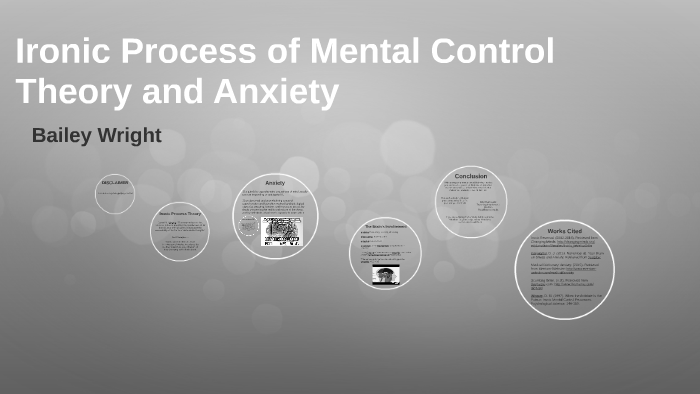Introduction
In the realm of decision-making, our minds often play tricks on us, leading us to make irrational choices that are contrary to our best interests. One such psychological phenomenon is the ironic process theory, which sheds light on how our efforts to suppress certain thoughts or behaviors can paradoxically make them more likely to occur. This mental model, deeply rooted in human psychology, has far-reaching implications for our daily lives, personal choices, business scenarios, and even public policy-making. In this blog post, we will explore the concept of ironic process theory, its prevalence in decision-making processes, the underlying mental biases, and practical strategies to avoid falling into its trap.
Defining Ironic Process Theory
Ironic process theory, also known as the white bear problem, was first introduced by Daniel Wegner, a prominent social psychologist. The theory proposes that deliberate attempts to suppress certain thoughts or actions actually make them more likely to resurface in our conscious mind. The more we try to push these thoughts away, the more they persistently occupy our thoughts, leading to what is known as the “ironic rebound effect.”
Relevance in Decision-Making
Understanding ironic process theory is crucial in decision-making processes because it highlights how our attempts to control our thoughts can backfire. This phenomenon is particularly relevant when we are faced with complex or emotionally charged decisions. By recognizing and mitigating the effects of ironic process theory, we can make more rational choices aligned with our long-term goals and well-being.
Examples of Ironic Process Theory in Action
- Personal Life Decisions: Consider a person trying to quit smoking. They actively suppress thoughts of smoking and attempt to distract themselves from the craving. However, research suggests that this suppression can intensify the desire for smoking, making it even harder to quit. By focusing too much on not smoking, they inadvertently increase the salience of smoking-related thoughts, leading to a higher likelihood of relapse.
- Business Scenarios: In a business context, a sales manager instructs their team not to think about the possibility of losing a major client. However, by emphasizing what not to think about, the manager unintentionally amplifies the team’s concerns and anxieties about the potential loss. Consequently, team members may become less focused and proactive, adversely affecting their performance and increasing the risk of client attrition.
- Public Policy-Making: Government interventions aimed at reducing drug use often include explicit campaigns warning against drug consumption. However, studies have shown that such campaigns can inadvertently increase drug-related thoughts and curiosity among vulnerable populations, potentially leading to an escalation in drug use. This exemplifies how attempts to suppress certain behaviors can paradoxically fuel their occurrence.
Mental Biases and Psychological Underpinnings
Ironic process theory is closely intertwined with various mental biases and psychological processes. One key bias is known as the availability heuristic, where our minds tend to assign greater importance to easily accessible information. When we actively try to suppress certain thoughts, those thoughts become highly accessible and prominent in our minds, creating a distorted sense of their significance.
Another relevant psychological underpinning is the monitoring process. Our minds have a natural tendency to constantly monitor our thoughts and actions. When we try to suppress a particular thought, our monitoring process becomes hyperactive, inadvertently drawing our attention back to the very thought we wish to avoid. This heightened monitoring intensifies the ironic rebound effect, making the suppressed thoughts more persistent.
Identifying and Avoiding Ironic Process Theory
Recognizing when we might be falling into the trap of ironic process theory is crucial for making better decisions. Here are some strategies to identify and mitigate its effects:
- Mindfulness and Metacognition: Cultivate self-awareness by practicing mindfulness techniques and metacognition, which involves observing your own thinking processes. By being aware of your thoughts, you can identify instances where you are actively suppressing certain ideas or actions.
- Reframing Techniques: Instead of attempting to suppress unwanted thoughts, shift your focus toward alternative, more constructive thoughts. Reframing helps redirect your attention to positive or productive aspects, reducing the salience of the suppressed thoughts.
- Cognitive Defusion: Rather than engaging in a battle of willpower against unwanted thoughts, practice cognitive defusion techniques. This involves distancing yourself from your thoughts by observing them as passing mental events, acknowledging their presence without attaching significance to them.
- Cognitive Behavioral Therapy (CBT): Consider seeking professional help from a therapist trained in CBT. CBT techniques can assist in understanding the triggers and underlying causes of thought suppression, offering practical strategies to manage intrusive thoughts effectively.
Implications and Conclusion
Understanding the implications of ironic process theory provides valuable insights into decision-making processes. By acknowledging the inherent limitations of thought suppression, we can approach choices with a more objective and balanced mindset. Awareness of our susceptibility to ironic process theory empowers us to make rational decisions and avoid falling into the trap of self-sabotaging behaviors.
In our personal lives, business endeavors, and public policy-making, recognizing the prevalence of ironic process theory can lead to better outcomes. By integrating the strategies mentioned above and adopting a more mindful approach, we can mitigate the effects of thought suppression, enabling more objective decision-making aligned with our long-term goals and values.
